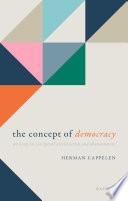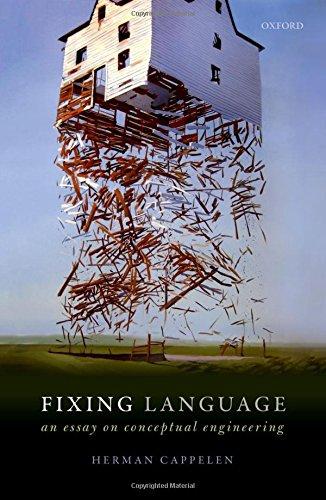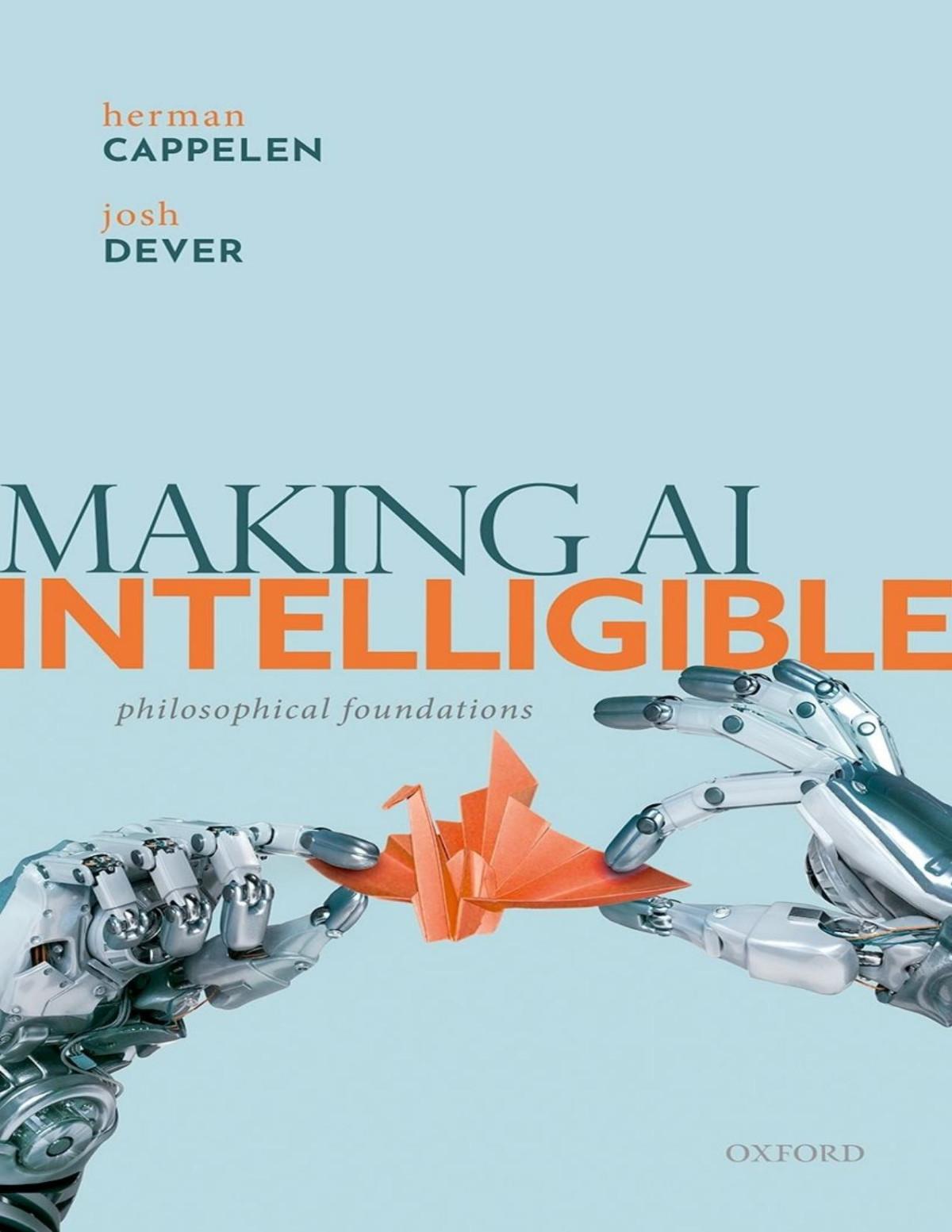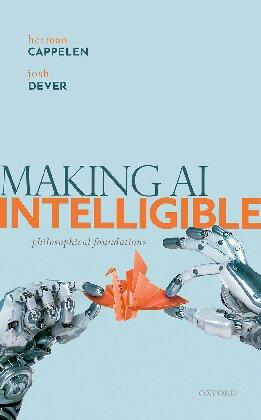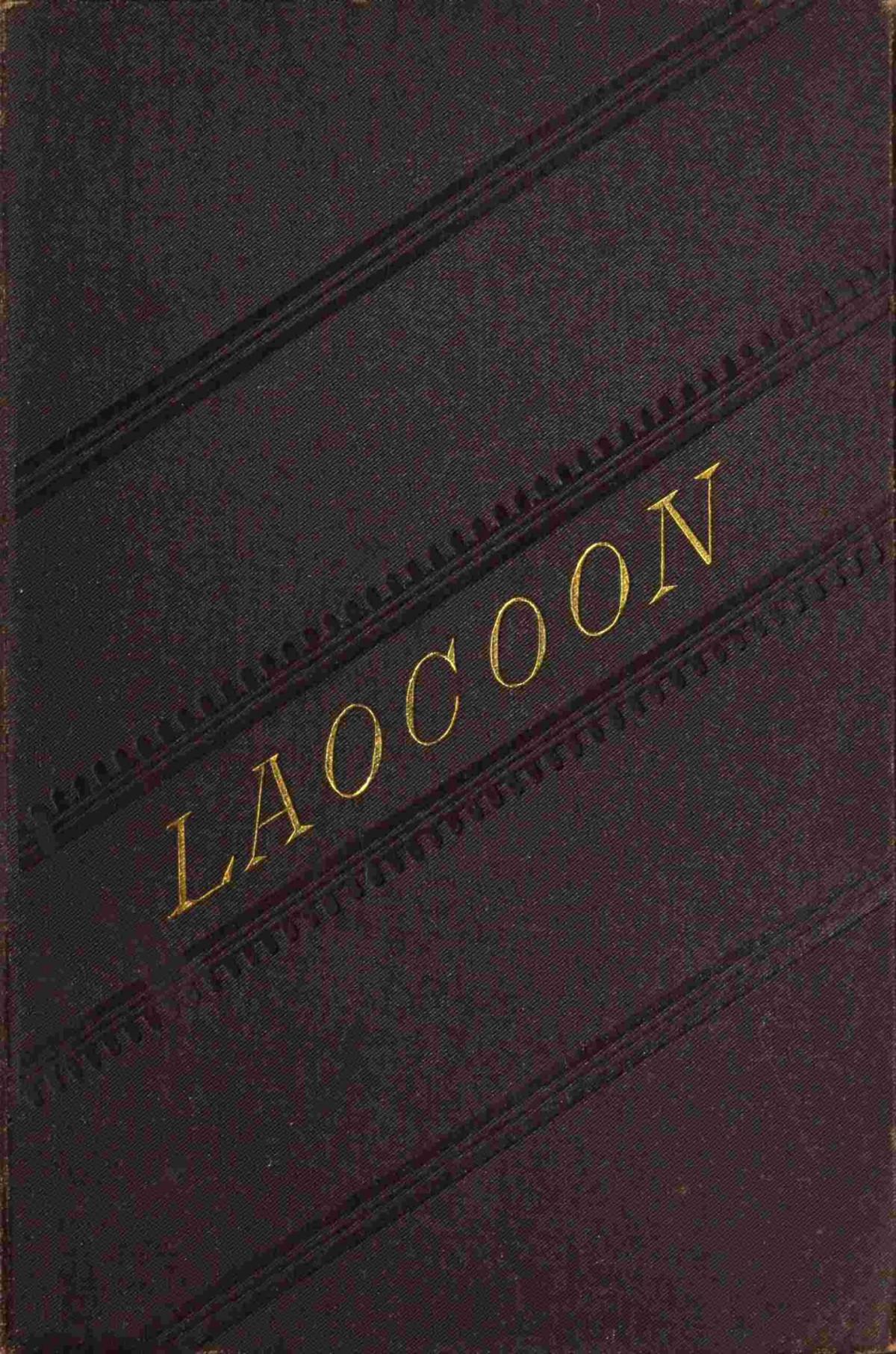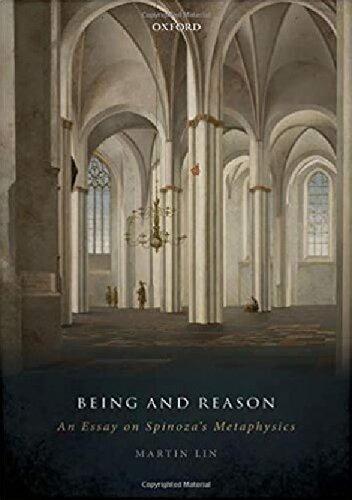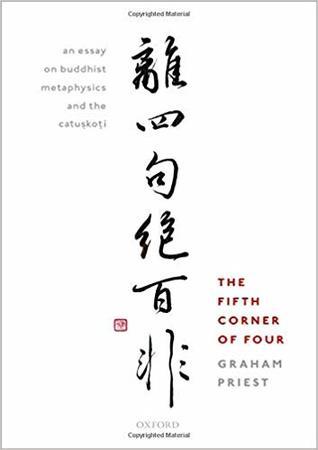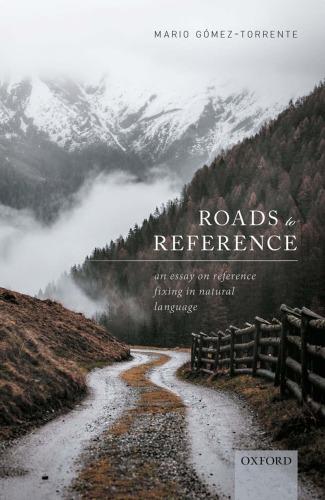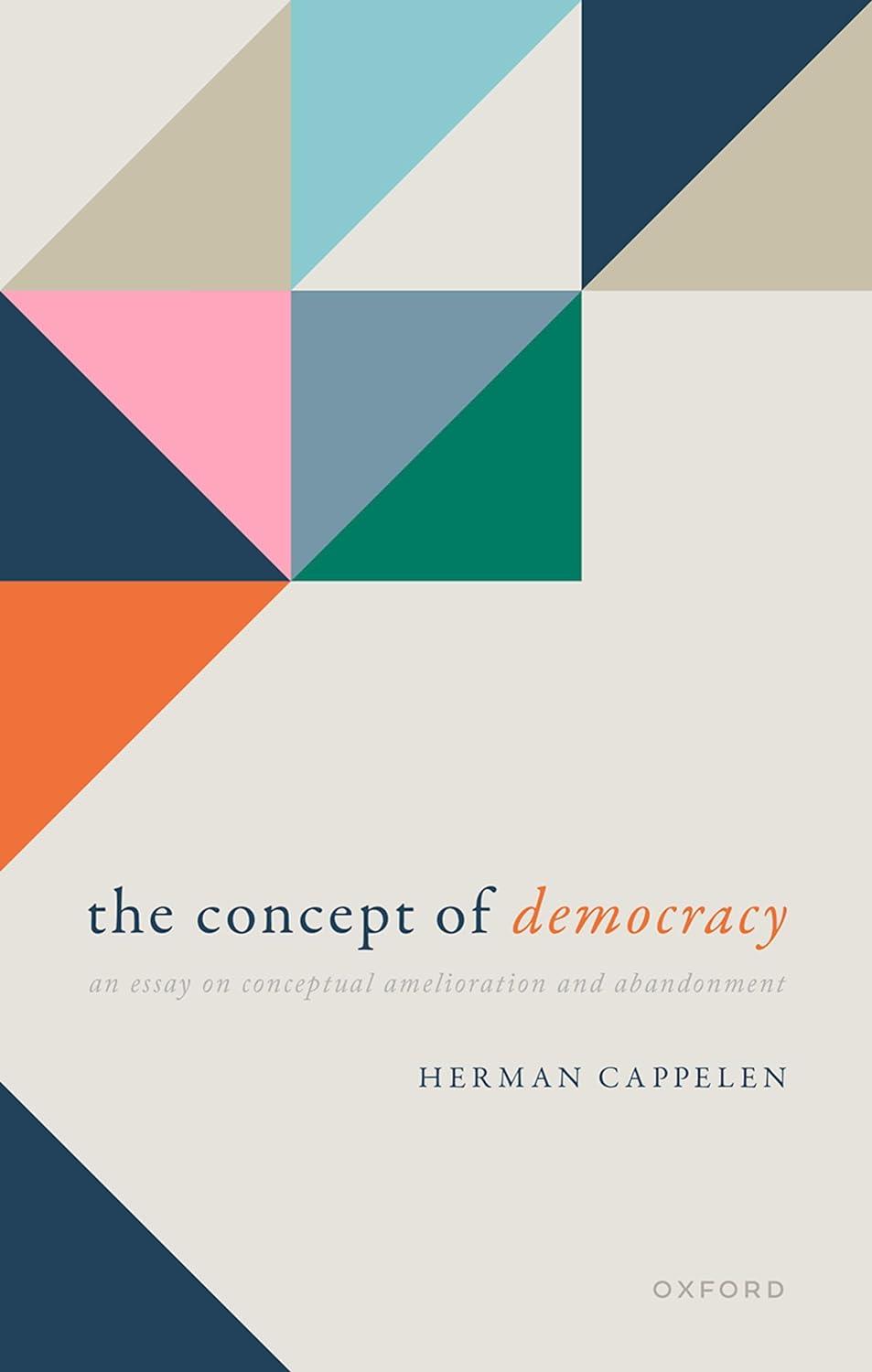1 Introduction
This is a book for those interested in the words we use when we think and talk about politics. In particular, it is about the words “democracy” and “democratic.” It is an exploration of a radical view: abolitionism. According to abolitionists, those words (and the concepts they express) should be abandoned. The arguments for abolitionism are fairly simple to state:
• We can do better than “democracy”: We have easy access to terminology that’s better than “democracy” and “democratic.”
• “Democracy” is semantically, cognitively, and communicatively defective: The histories and current use of “democracy” and “democratic” make them cognitively, semantically, and communicatively defective.
The abolitionist’s argument is simple: if these terms are defective and we can easily do better, then let’s get rid of them! Abolitionism is a surprising and unsettling view because we’re not used to the idea that some of our linguistic devices can fail us. We tend to take for granted that when we have an entrenched lexical item, with a long history, we can reliably use it to express thoughts, communicate, plan, and coordinate action. One broader lesson of this book is that such confidence is misplaced: we should take seriously the possibility that failure is an option.
Abolitionism is not all gloom and doom. It contains a message of good cheer: we have easy access to conceptual devices that are more effective than “democracy.” We can do better. These alternative linguistic devices will enable us to ask better questions, provide genuinely fruitful answers, and have more rational discussions. Moreover, those questions and answers better articulate the communicative and cognitive aims of those who use empty terms such as “democracy” and “democratic.” The switch to alternative devices would be a significant communicative, cognitive, and political advance.
This book is not an unconditional defense of abolitionism. It’s a defense of the view that a strong case can be made for abolitionism relative to many
(or most) important contexts. Overall, the current reliance on this cluster of concepts is a cognitive weak spot.
It’s important to emphasize that abolitionism is not an argument against democracy. It’s an argument against “democracy.” The difference really matters. Abolitionism is not a defense of epistocracy,1 dictatorship, or any other form of governance considered to be an alternative to what people call “democracy.”2 If the question you’re interested in is, “Is democracy a good form of governance?”, the abolitionist’s reply is, In most (or all) contexts, it’s a bad question that doesn’t deserve an answer—and I’ll show you how to ask better questions that can be answered. Abolitionists don’t take a stand on how any group should make collective decisions, nor on how nations should decide on political issues. It’s a view about which concepts are communicatively and cognitively useful when we talk and think about collective decision-making.
These conceptual questions are prior to and more fundamental than thinking about politics. In order to start thinking about politics you first need to make conceptual choices. Most of us are not aware that we make those choices. We uncritically use the conceptual tools handed to us by tradition or authority. That can be an irresponsible attitude. In many cases, serious thinking should start by critically examining and refining the tools of thinking and talking. This book is an essay on that kind of foundational conceptual criticism and amelioration, applied to a core part of political discourse.
My discussion draws on recent work in philosophy and political theory. More specifically, it engages with issues at the intersection of philosophy of language, conceptual engineering, democratic theory, and politics. As an introduction to the central themes of the book, here are some directions from which you can get interested in all or parts of what I’ll be discussing:
From an interest in the debate about the value and nature of democracy: If you’re a typical reader of this book, you’re likely to be a follower of what Bryan Caplan calls “the secular religion of democracy.” In less tendentious terms, you’re likely to think that what’s called “democracy” is an excellent way to organize a nation—maybe even the best possible way to do it. More generally, you’re likely to think that it’s a good way for groups to make collective decisions. That view, however, is not universally shared.
1 Like, e.g., Brennan (2016), Somin (2013), and Caplan (2008).
2 Such as the idea that we should modify our institutions to have “less” democracy, such as less often or fewer occasions to vote (Jones 2020).
Plato despised democracy, the founding fathers of the US shunned the term “democracy” (by which they meant something like “direct democracy”), and there are contemporary theorists who argue against democracy. Bryan Caplan’s book The Myth of the Rational Voter aims to prod its readers to leave “the church of democracy.” The title of Jason Brennan’s book Against Democracy speaks for itself. Many readers will have a mixed view according to which (at least some) political decisions should be taken in a democratic way, but it’s OK that The New York Times, Harvard, and Tesla are nondemocratic. Among those who like what they call “democracy,” there’s intense disagreement about both what the term means and the justification for that meaning (Chapters 4 and 5 go through this in more detail).
Abolitionism is an alternative view that has not, as far as I know, been defended before. Abolitionists argue that these debates over “democracy” should be rejected because the concept is defective at its core. Questions such as, “Is democracy a good form of governance?” and “Is democracy better than epistocracy?” are, despite appearances, bad questions that can’t be answered because the concept of democracy is defective and can’t be ameliorated. Abolitionists provide a diagnosis of why we ended up relying on the concept of “democracy,” and show how to do better. Caplan was almost right: there’s a secular religion, but it’s not of democracy, it’s of the concept of democracy.
For many readers, the view that “democracy” is so defective that it should be abandoned is extremely hard to believe, or even to take seriously.3 After all, when I say, “Norway is a democracy,” that seems like a paradigmatic, clear, and meaningful statement that can be used to communicate a clear thought. It is hard to accept that entrenched and widely used terminology can be meaningless. To soften the reader up to the idea, the first part of this book provides a general introduction to the theory of defective concepts, which I call the theory of abandonment.4 I draw on a broad range of examples from science, politics, and ordinary life to show that we have frequently used concepts that we have later discovered are fundamentally flawed. The goal of those examples is twofold: (i) to make the (apparently) incredible conclusion that “democracy” should be rejected more palatable, and even
3 I should qualify this: when I bring up how hard it is to believe the conclusion of this book to students, there are often many of them who disagree—to them, it’s almost trivial that “democracy” and other terms are empty shells without meaning.
4 To be clear: I’m using “abandonment” to denote what the abolitionist advocates. Thanks to an OUP reader for noting that this could be unclear.
plausible; and (ii) to open up general systematic study of the conditions under which concepts and lexical items should be abandoned.
From an interest in conceptual engineering: Conceptual engineering, as I think of it,5 has three stages:
(i) The assessment of our concepts, or, more generally, our representational devices.
(ii) Proposed improvements to our representational devices.
(iii) Efforts to implement those proposed improvements.
My earlier work on conceptual engineering (e.g., Cappelen 2018) had two limitations:
• First, I focused on cases where there were live ameliorative options.
• Second, the discussion was on a very high level of abstraction and without commitment to any particular case. That book discusses a lot of examples, but doesn’t endorse any of them. As far as the arguments in Cappelen (2018) go, there might be no successful cases of conceptual engineering. The entire discussion takes the form, “If this ameliorative proposal were acceptable, then .”
This book is different. It takes seriously the possibility that the assessment stage can reveal defects so significant that (complete or partial) abandonment is justified. I call the exploration of that option the theory of abandonment. Part I is an introduction to this theory. The rest of the book then focuses on an extremely difficult and controversial case study: “democracy” and “democratic.” Given inherent bias in favor of lexical conservatism, I don’t expect the conclusion to convince all that many people. That said, it might move some people to take seriously a contextually restricted version of the thesis.
As will become clear, there is no algorithm for how to justify abandonment: a lot will depend on the details of particular cases. However, once you start abandoning terms, it becomes tempting to overuse this strategy. It turns out that many of our inherited and entrenched concepts are shady.
5 See Cappelen (2018, 2020a), the papers collected in Burgess, Cappelen, and Plunkett (2020) and Eklund (2021) for synoptic presentations of the field; see Eklund (2017), Haslanger (2000), and Plunkett and Sundell (2013) for the application of conceptual engineering to social or normative philosophy.
This observation then raises an exciting new and large-scale research project: what should be abandoned and what should be preserved? What are the conditions under which abandonment is justified? How is abandonment implemented? How do abolitionists relate to diehard preservationists?
From an interest in the methodology of political theory: Political science and political theory have a significant methodological literature focused on the conceptual foundation of politics. Some of that literature concerns what we might call the nature of conceptual analysis. Sartori authored the seminal papers on this issue (e.g., Sartori 1970, 1987, 1991). This work has been influential in the intervening decades, and one assumption underlying it is a notion of conceptual “stretchiness,” which refers to applying concepts to cases distinct from those for which they were originally developed.6 A different strand of the literature, which also includes work on metaethics and the foundations of political philosophy, is concerned with essentially contested concepts (Gallie 1956). This idea—roughly, that there are some concepts whose definition is always up for debate and never settled—has been important (see Collier, Hidalgo, and Maciuceanu 2006 for an overview), especially because Gallie said that democracy was an essentially contested concept “par excellence.”7 This book aims to incorporate recent work in conceptual engineering and metasemantics into these debates. In doing so, I also try to align discussions of terms such as “democracy” with how, say, epistemologists have used facts about the expression “knows” to understand knowledge.
From an interest in bullshit and the declining quality of public discourse: At the beginning of his book On Bullshit, Harry Frankfurt says: “One of the most salient features of our culture is that there is so much bullshit. Everyone knows this.” Frankfurt develops a primarily epistemic account of what bullshit is. The bullshitter is someone who “. . . offers a description of a certain state of affairs without genuinely submitting to the constraints which the endeavor to provide an accurate representation of reality imposes. Her fault is not that she fails to get things right, but that she is not even trying.” (Frankfurt 2005: 32) According to Frankfurt, politics
6 Something that became important in the twentieth century, as democracies increased in number and also variation, and as quantitative methods were increasingly used to define democracy. Further influential work in this vein is theorizing about democracy “with adjectives,” for example in David Collier and his coauthors (Collier and Mahon 1993; Collier and Levitsky 1997; Collier and Adock 1999).
7 There is interesting work in philosophy here, e.g., Väyrynen (2014); Evnine (2014). For examples of recent work that aims to be synoptic or advance the debate concerning concepts in political theory, see, e.g., Olsthoorn (2017) and Gerring (2012).
and public discourse are primary sources of bullshit: “. . . (it) is unavoidable whenever circumstances require someone to talk without knowing what he is talking about.” The political domain is one in which there are endless opportunities and even obligations for citizens to talk about issues they hardly understand (Frankfurt 2005: 63).
G. A. Cohen, in his paper “Deeper Into Bullshit,” builds on Frankfurt’s analysis, but focuses on whether what bullshitters say is meaningful (rather than whether they’re tracking truth). Cohen points out that nonsense is one meaning of “bullshit” in colloquial English. For Cohen, the most interesting form of nonsense is found in discourse that is “. . . not only obscure but which cannot be rendered unobscure, where any apparent success in rendering it unobscured creates something that isn’t recognizable as a version of what is said” (Cohen 2002: 332).
The idea that there’s a lot of bullshit shouldn’t be left as a theoretical and abstract possibility. We might all share Frankfurt’s sense that a very large part of what counts as political discourse consists primarily of bullshit, but one needs to flesh out that idea with concrete examples. This book is in part an effort to identify a particularly important source of bullshit in contemporary public discourse.
From an interest in verbal disputes: How widespread they are and how they can be avoided. A central claim in David Chalmers’s seminal paper “Verbal Disputes” is that much of the history of philosophy consists of verbal disputes. For Chalmers, such disputes are both pointless and fake. They are the result of people using words with different meanings without realizing it. They are not substantive disputes, and can be resolved metalinguistically, by the participants being explicit about what they actually mean. Doing so requires eliminating the terminology that’s the source of the confusion. Chalmers claims that debates over all of the following questions have been beset by verbal disputes:
What is free will? What is knowledge? What is justification? What is justice? What is law? What is confirmation? What is causation? What is color? What is a concept? What is meaning? What is action? What is life? What is logic? What is self-deception? What is group selection? What is science? What is art? What is consciousness? And indeed: What is a verbal dispute? Chalmers 2002, 405
If, like me, you are sympathetic to Chalmers’s view, it should be obvious that the problem isn’t restricted to philosophy. If it’s found in philosophy,
it’s everywhere. Think of this book as (in part) an application of Chalmers’s framework to “democracy” and “democratic.”8 The view is inspired by Chalmers not just in making the claim that discourses involving “democracy” are infected by endless verbal disputes but also in suggesting that this issue be resolved by eliminating “democracy” from such discourses (in effect applying Chalmers’s method of elimination).
Stepping Back: “Democracy,” Politics, and Philosophy
I’ll end this introductory chapter with an overview of the different parts of the book, but before doing so, I’ll try to briefly locate the topic of the book and its central thesis within current non-academic political discourse. While the book is about some words, it’s obvious that the primary interest of these words is derived from the central role they play in contemporary political discourse. The word “democracy” does a lot of work for us. Not a day goes by without serious warnings about the threat to democracy from China, Russia, and Hungary. The Republican Party is regularly described as moving in an anti-democratic direction. Prominent public intellectuals such as Anne Applebaum and Timothy Snyder warn us against the seductive lure of authoritarianism. The Washington Post recently published an article with the headline, “Historians privately warn Biden that America’s democracy is teetering.”9 It quotes a “person familiar with the exchange” as saying, “A lot of the conversation was about the larger context of the contest between democratic values and institutions and the trends toward autocracy globally.”
One glaring problem with this way of framing the political terrain is that we have no agreed upon understanding of what the word “democracy” means, what democracy is, or what it ought to be. This is uncontroversial Any decent introductory text on democratic theory or practice will tell you upfront that there are deep and potentially irresolvable disagreements about how to define “democracy.” Directors of the Economist Intelligence Unit
8 A reader for OUP asks whether my talk about verbal disputes in this book presupposes a background form of semantic internalism (and so is in conflict with my Cappelen 2018). It does not. There can be verbal disputes at the semantic level (corresponding to Chalmers’s narrow notion) or at a speaker-meaning level (corresponding to Chalmers’s broad notion). Both are compatible with both semantic internalism and semantic externalism.
9 https://www.washingtonpost.com/politics/2022/08/10/biden-us-historians-democracythreat/.
(EIU), in an introduction to their Index of Democracy, acknowledge that “There is no consensus on how to measure democracy. Definitions of democracy are contested, and there is a lively debate on the subject.” Political sociologist Irving Louis Horowitz has written, “The world’s only superpower is rhetorically and militarily promoting a political system that remains undefined—and it is staking its credibility and treasure on that pursuit.”
Now, you might have thought ‘democracy’ just means something like a form of governance where there are regular, free, and fair elections of political representatives, sometimes combined with votes on referendums. This definition squares with common sense, and has a distinguished intellectual pedigree, but it makes democracy too easy to fake. Imagine an elected leader who uses the powers of their office, along with state-of-the-art propaganda, to manipulate the populace, marginalize any opposition, and thereby mold “the will of the people” to ensure their continued reign. This is why Amartya Sen emphasizes that “ it is crucial to appreciate that democracy has demands that transcend the ballot box. . . . Balloting alone can be woefully inadequate, as is abundantly illustrated by the astounding electoral victories of ruling tyrannies in authoritarian regimes, from Stalin’s Soviet Union to Saddam Hussein’s Iraq.” The point applies to direct and indirect democracy alike.
It’s for these reasons that organizations such as Freedom House and the EIU publish nuanced rankings of how democratic various countries are— taking into account a broad range of factors beyond voting itself. The EIU measures countries along sixty dimensions, including the percentage of women in parliament, adult literacy, the degree of religious tolerance, and the proportion of the population that believes that democracy benefits economic performance. These democracy indices help flesh out our “democratic values.” But they inevitably seem parochial and unprincipled: a grab bag of features that happen to be vaunted by certain people in a certain culture at a certain historical moment. Who gets to pick the dimensions, and how do they decide which ones or how many to include? How can they be quantified, aggregated, or meaningfully compared? And what exactly makes them measures of democracy? Again, all these difficulties are well known and carefully elaborated in scholarly work.
Here’s the conundrum: isn’t it intellectually and politically irresponsible to put our faith in something—‘democracy’—when we don’t know what ‘democracy’ means or, correspondingly, what democracy is? Over the last century, philosophers of language have had a lot to say about how we should
react to terminology that appears to be deeply defective. That focus has been amplified by recent work in conceptual engineering and conceptual ethics. We can think of theorists as responding in four ways to the types of problems outlined in connection with ‘democracy.’ Some are libertarians and refuse to engage in meaning-policing: let a thousand meanings bloom, they say. Some are ameliorators and try to make language better by improving the situation. Some are Cynics who say that political speech is already so corrupt and empty that there’s no point trying to fix it. Finally, and this is the direction I am leaning in, there’s abolitionism: the view that we can do better than ‘democracy.’
The libertarian thinks that we don’t need to (and maybe we can’t) decide what “democracy” means. People who theorize about democracy shouldn’t be in the business of policing public language. To repeat: let a thousand definitional flowers bloom, says the libertarian. This view has a deeply entrenched intellectual tradition behind it. Using terminology introduced by Walter Gallie in 1957, philosophers and political theorists often say “democracy” is an “essentially contested” concept. According to Gallie, some expressions—“art” and “democracy” being paradigms—have their meanings settled in situ by the values, priorities, and goals of individual speakers.10 Since our values, priorities, and goals will obviously differ, the meanings of these words will be constantly renegotiated.
Even though Gallie’s view has been very influential and is widely accepted by academics, the implications for real-world politics are often overlooked. Consider a document the Chinese government released in 2021 called “China: Democracy that Works.” The authors say: “There is no fixed model of democracy; it manifests itself in many forms. Assessing the myriad political systems in the world against a single yardstick and examining diverse political structures in monochrome are in themselves undemocratic.” This sounds very much like a Gallie-inspired form of libertarianism. The document then details the democratic structures at play within the Chinese government, from electoral democracy to consultative democracy. It goes on to argue that China is one of the best-functioning democracies on earth: “In the richly diverse world, democracy comes in many forms. China’s democracy is thriving alongside those of other countries in the garden of civilizations.”
10 Warning: while I think that Gallie’s view is useful for heuristic purposes as an introduction to the topic, I don’t think this a good theory (or even really a theory at all). For further discussion, see Chapter 12.
Many would balk, dismissing the document as propaganda. But even so, its existence raises a legitimate conceptual challenge, especially for the conceptual libertarian. According to the libertarian, people are free to develop their own concept of democracy, according to their context, their values, and their goals. If that’s the right view, who is to say that the Chinese government’s definition isn’t as legitimate as, say, that of the editors of The Economist?
You don’t have to go to China to feel the force of this problem. Within the US there are deep divisions about what it means to support “democracy.” The 45th President of the US (and the movement he leads) is regularly described as “authoritarian” and “anti-democratic.” However, in a speech after the 2020 election, Mr. Trump said: “I’m not the one trying to undermine American democracy, I’m the one who’s trying to save it. Please remember that.” Trump likes the word “democracy” and wants it to apply to the type of governance he supports. If Gallie and the libertarians are right, China, Trump, and the editors of the Economist Intelligence Unit might all be right, because they use the word “democracy” with different meanings. There’s no absolute truth about what “democracy” means or what democracy is. While some might be happy with this, it will strike many of us as an untenable form of relativism that makes it hard to see what it would mean for there to be an ongoing battle between democracies and authoritarianism. It makes public discourse involving “democracy” a depressing and neverending orgy of verbal disputes.
In response to these concerns, the ameliorator tries to improve “democracy” by giving it a clear, appropriate, and fixed meaning. It’s hard to see how to achieve this, but one strategy can be modeled on what often happens in the sciences. When scientists (e.g., in physics, medicine, or economics) use an expression with a determined meaning, it has that meaning independently of whether it is used in a messy way by the rest of the linguistic community. According to an influential tradition in the philosophy of language (often associated with Hilary Putnam), this is called “linguistic division of labor” and it allows ordinary speakers to piggyback on the experts’ precise meaning. For example, what “weight” means in physics is fixed in a clear and precise way, independently of how that term is used by ordinary speakers of English (where “mass” and “weight” are often used interchangeably). What “arthritis” means in English depends on how medical experts use that term, independently of whatever confused views ordinary speakers have about arthritis.
In theory, amelioration is a promising strategy, but the problem is that the way “democracy” is tied to norms, values, and practical policies makes it
very different from “weight” and “arthritis.” Since there’s no convergence on the relevant norms, values, and practical policies, we’re simply not going to get a convergence on the meaning of “democracy” (in the way we have for “weight” and “arthritis”). Even among political scientists, there are deep and irresolvable disagreements about how to define “democracy.” We find everything from Schumpeterian minimalists (where the only thing that matters is an occasional election) to quantitative maximalists (where a broad range of cultural, normative, and institutional factors are quantified as part of the various democracy indices). And that’s just including a tiny sample from the Western traditions. If there’s no convergence even among experts, we’re back to the messy libertarian reality of many meanings. You can, of course, try, as an individual thinker and speaker, to mean something very specific when you use the term “democracy,” but others will not pick up on that meaning, and so your idiosyncratic usage will just contribute to the increased cacophony of “democracy” meanings.
This brings us to the Cynic, who says we shouldn’t worry too much about these problems, because they are ubiquitous and ineliminable aspects of political discourse. According to the Cynic, it’s naive to think that the central goal of political speech is to convey clear thoughts or engage in rational deliberation. As Harry Frankfurt points out, “The realms of advertising and of public relations, and the nowadays closely related realm of politics, are replete with instances of bullshit so unmitigated that they can serve among the most indisputable and classic paradigms of the concept.”11 In this spirit, the Cynic says that the word “democracy” can serve its various non-rational political purposes independently of any clear or agreed-on meaning. To ask for precise definitions and coordinated meanings is to misunderstand the nature and goal of political discourse.
While there’s certainly something to be said for the Cynic’s picture of political speech, it is also defeatist and hyperbolic. Surely, not all political speech is empty of clear thought, even though some salient examples are. If you’re a theorist, a public intellectual, a serious journalist, or an honest politician, you don’t want to self-identify as a bullshitter whose aim is simply to spew empty rhetoric. You’ll want to do better.
So the conundrum remains: we can’t have a broad range of meanings (as the libertarian advocates) and we are unlikely to converge on a single meaning (as the ameliorator hopes for). At the same time, we want to 11 Frankfurt 2009.
improve on the current state of discourse involving “democracy” (contrary to the Cynic). This book is primarily an exploration of (and tentative defense of) an abolitionist solution to the conundrum. The abolitionist puts less weight on high-level abstract and vague terminology such as “democracy” (and its contrast, “authoritarianism”), and instead relies on terms that are less problematic and contested. We should aim to anchor political discourse in careful descriptions, analyses, and assessments of particular policies, structures, and actions, grounded in a detailed understanding of historical, cultural, and economic contexts. For some illustrations of abolitionism at work, first consider the familiar claim that the Trumpdominated GOP is undermining democracy in the US and moving in an authoritarian direction. Protect Democracy usefully develops this concern on seven fronts: 1) The GOP attempts to politicize independent institutions. 2) They spread disinformation. 3) They aggrandize executive power at the expense of checks and balances. 4) They quash criticism and dissent. 5) They specifically target vulnerable or marginalized communities. 6) They work to corrupt elections. 7) They stoke violence. It’s important to have a debate about the extent to which 1–7 are true about the GOP, and how to respond to those that are. However, according to the abolitionist, it would be a waste of time to try to figure out whether these seven points really are in conflict with the correct definition of “democracy.” Even if Mr. Trump or one of his followers came up with a definition of “democracy” according to which the GOP is the true defender of “democracy,” and even if we accept that there’s no unique correct definition of “democracy,” we should still be worried about points 1–7. Convergence on the correct definition of “democracy” is at best a distracting detour.
Next, consider Putin’s invasion of Ukraine, which is often described as yet another “attack on democracy.” Even if we abandon that terminological perspective, we have plenty to say about what has happened, why it happened, and why it’s horrific. Putin has started an unjustified war, he murders innocent people, bombs apartment buildings, makes people starve, etc. To think that all of this (and much more) is usefully summarized by claims about “democracy vs. authoritarianism” risks missing most of what is important, to instead hang everything on the interpretation of a piece of terminology with a dubious foundation.
More generally, the abolitionist strategy of downplaying our reliance on terms such as “democracy” goes hand in hand with a tendency to put less weight on the Grand Narrative of contemporary geopolitics as an ongoing battle of “Democracy vs. Authoritarianism.” That’s an attractive heuristic—it
helps us unify diverse phenomena and find simplicity in the extraordinary complexity of contemporary politics. However, we should also recognize that some simplifications are dangerous and undermine our ability not just to understand the world but also to communicate about it. When there are serious wrongdoings happening, we owe it to those who are harmed to make an extra effort to think clearly, carefully, and in high resolution. If we find that the Grand Narrative (and its associated terminological paraphernalia) is an unhelpful simplification, we should outgrow it.
The above is one way to think about how various issues that have been at the center of recent (and not so recent) work in philosophy of language interconnect with large-scale political issues. This book, however, is not about those political issues. It is focused on a very narrow range of linguistic issues: whether “democracy” and “democratic” are meaningful, whether they are effective communicative devices, and whether we can do better. That said, it is useful to keep in mind that a significant reason for taking an interest in these words is that they play such an important (and I think problematic) role in public discourse, deliberation, and decision-making.
Overview of the Book
Here’s a quick overview of the book and its chapters:
• Part I (Chapters 1–4) outlines a theory of abandonment in general terms, without a focus on any particular cases. Chapter 2 presents four kinds of argument that can support abandonment. Chapter 3 addresses various issues having to do with how abolitionists can and should communicate with preservationists. Chapter 4 compares abandonment with related but distinct notions such as amelioration, reduction, elimination, and replacement.
• Part II (Chapters 5 and 6) prepares the case against “democracy” by investigating various and often overlooked features of the use of this word in English. There will be a particular focus on the interaction between the noun “democracy” and the adjective “democratic.”
• Part III presents the case for abandonment. Chapter 7 presents the defects of “democracy” and “democratic.” Chapter 8 shows how easy it is to do better. Finally, Chapter 9 describes the consequences of abandonment.
• Part IV considers an alternative to abandonment: amelioration (the theme of Cappelen 2018). Chapters 10 and 11 investigate whether we could ameliorate “democracy” rather than abandon it. The conclusion is rather negative.
• Part V consists of a brief concluding chapter where I consider various objections to both abandonment and to the project as a whole.
Before getting started, I need to flag one persistent expository problem: this book argues for the abandonment of “democracy” and “democratic.” Along the way, I engage with a lot of literature that uses those terms, and I must present and engage with these authors’ views. In doing so, I end up using “democracy” and “democratic” occasionally. While this is in principle avoidable, the cost would be an unreadable book with weird sentences containing all too many quotation marks. In his paper “Elusive Knowledge,” David Lewis uses the word “knows” in ways that aren’t entirely compatible with the theory in that paper (sort of in the same way that I have a problem with using “democracy” in a book that argues against the use of “democracy”). Lewis is aware of the problem and his response is, I think, perfect:
I could have said my say fair and square bending no rules. It would have been tiresome, but it could have been done. The secret would have been to resort to ‘semantic ascent’. . . . If you want to hear my story told that way, you probably know enough to do the job for yourself. If you can, then my informal presentation has been good enough.
When distancing from the terminology is easy and appropriate, I’ll often use the expression “the D-words” to denote “democracy” and “democratic” (but, admittedly, I haven’t been able to develop an entirely consistent convention for how to do this).12
12 Here’s a related complication that I’m completely ignoring in the upcoming chapters: there are many theories about what concepts are, what the relationships are between concepts and meaning, and how lexical items fit into all of this. The situation is worse than that: I am sympathetic to the view in (Machery 2009) in which he argues that we should abandon the term ‘concept’. This makes my use of ‘concept’ and its cognates deeply problematic. I wish I had a satisfactory solution, but one can only do so much at a time. If I were to write this whole book in a ‘concept’-free way, it would make the book less accessible and it would bake unrelated controversial assumptions into the discussion. In a previous book on conceptual engineering (Cappelen 2018), I developed a framework for thinking about some of these issues (“the austerity framework”), and if you will, you can read this book in light of that. However, I think (but I’m not entirely sure) that most of what goes on in this book can be understood without taking on board any particular theory of concepts and their relationships to lexical items.
